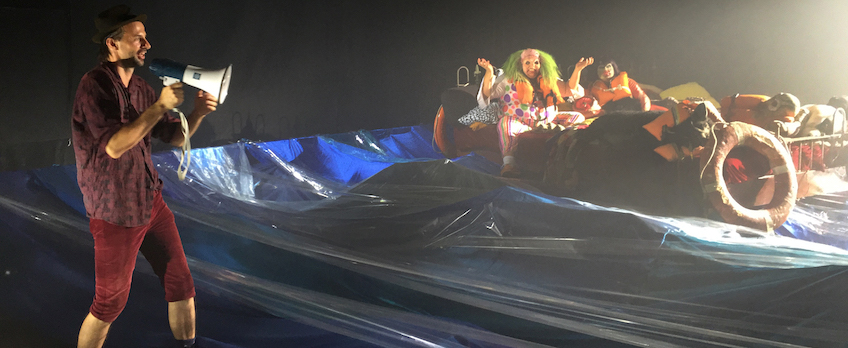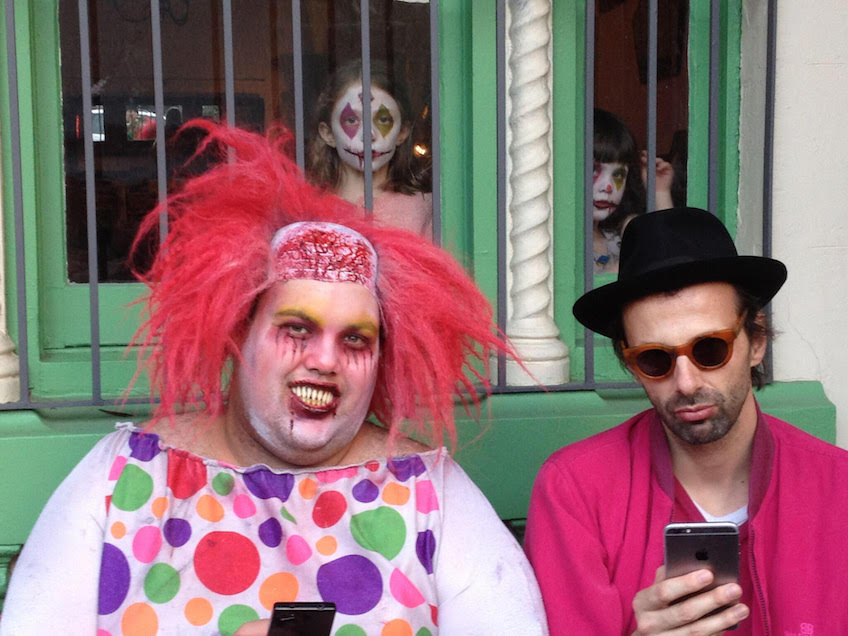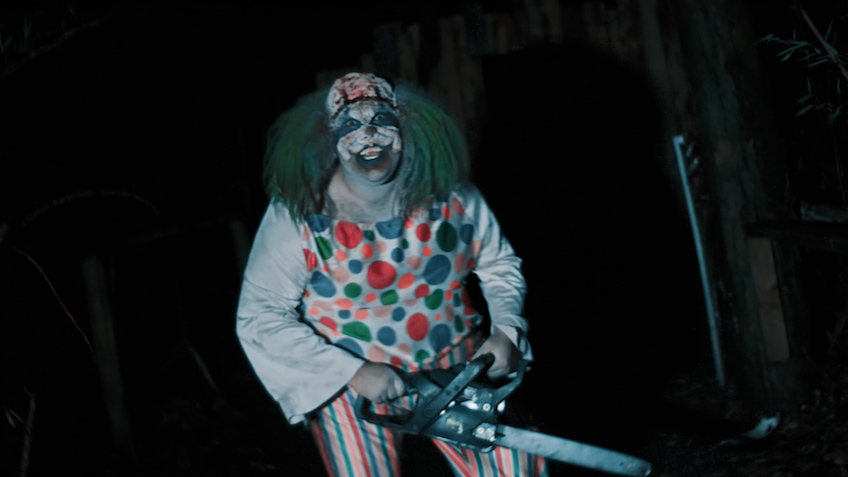Interested in writing for our blog? Send your pitches to editor@miff.com.au.
More Heart than Horror: An Interview with Florian Habicht

German-Kiwi filmmaker Florian Habicht isn’t all that different from the performers he interviews in his new MIFF documentary Spookers. Sure he’s swapped out zombie clown makeup and fake blood for fedoras and goofy 70s shirts, but he has a joyful peculiarity about him, a sense that he wants to entertain, even in a brief meeting.
Interview by Dominic Ellis

Not unlike his unique personality, Habicht’s films are a bit uncanny, usually revolving around an experimental structural conceit. For his debut, Woodenhead (2003), a twisted fairy tale of sorts, he and his crew pre-recorded all the sound, music and dialogue before even shooting. “It was like a Milli Vanilli kind of thing,” he explains. Rubbings from a Live Man (2009) was a biography of a theatre actor partially performed by its subject, while his 2011 film Love Story (MIFF 2012 ) took a ‘choose your own adventure’ approach to documentary-making, generating a narrative from New York street interviews.
He credits his early innovations to Creative New Zealand’s Screen Innovation Production Fund. “It inspired me,” Habicht says, and he has held onto that experimental approach even as his films have grown in scale.
Spookers uses its subject’s dreams as a framing device. Featuring a colourful cast of amateur actors who don elaborate makeup and freak out visitors to Auckland’s iconic horror house, talking head interviews and dynamic shots of the inner-workings of the park are interspersed with gorgeous fish-eyed vignettes of the esoteric performers’ dreams and nightmares. One such recreation involves a demonic clown stepping off a floating bed, removing his life-jacket and walking on water, all the while reciting Ave Maria.
“It was like going back in time with all the handmade effects for the dreams,” Habicht says. “It was like going back to Cinecitta.”
A graduate of Auckland’s Elam School of Fine Arts, Habicht’s films are as strange as they are sincere and joyful. Like a thorough psychologist, he asks his subjects unusually probing questions: “what are your dreams?”, “what are you afraid of?”

Indeed, Spookers relies heavily on the relationships Habicht forms with his performers, eliciting unguarded insights into their upbringings and emotional wellbeing. It’s an unconventional film, ostensibly a horror-doco in the vein of The Nightmare or Beware the Slenderman, but far more intimate than those. “More heart than horror,” is how he describes it, lamenting how some Sydney Film Festival attendees went in looking for a traditional ‘Freak Me Out’ flick (the stream in which it first screened). It was different back home in New Zealand.
“Ultimately, it’s New Zealand people they're watching on screen and very real and multi-cultural people. Not just white people but lots of Pacific Islanders and Maori and Europeans.”
In spite of the chainsaw-wielding clowns and demonic brides, the most striking thing about Spookers is the sense of community such an unusual place generates. Most of the crew are humbled to work there. After all, Spookers is an institution on the North Island – “you turn 16 and then you go to Spookers,” is the local proverb. But the performers are bound by far more than pride. Habicht refers to their connection by the Maori word ‘whanau’.
“Whanau is family, but it’s more than that. It’s like a big group hug. It’s a really beautiful thing…When we had the premiere, all the characters were there on the stage, and they performed as zombie clowns and performed a Haka. It was so moving.”
True to that sense of ‘whanau’, Habicht insisted that Spookers be a fully collaborative process. To kick off production, the performers placed ideas, dreams, songs and words into a hat.
“I'd asked them, ‘Is there any dialogue you want in the film?’ Everyone would write down some great dialogue and put it in my hat. ‘Are there any musical numbers, songs you want to write?’ Everyone wrote a song and put it in my hat. ‘When was the last time you cried?’...‘What's the thing that makes you most happy in life?’”
The end result feels chaotic at times – an interview with an ex-patient of Kingseat Hospital (the psychiatric facility that now hosts Spookers) about the morality of literally demonising mental health is interesting, but it’s too fleeting within the context of the rest of the film. Kingseat has a complex and haunting history, and perhaps could have made for an interesting subject in and of itself, but Spookers fares far better when it’s zoomed in on the performers and the owners: their stories, their fears, their dreams.’

Huia the clown
Habicht describes his interviewing style for his earlier films as, “like a doctor that gives you an injection so fast that you don't have time to freak out,” but for Spookers he took the opposite approach, revisiting the performers multiple times over one year. He explains that he and Huia the clown are so close now that they consider themselves twin brothers: “I just gave Huia ten years from me. So now I'm 32 years old and he's 32 years old. Only our mom can tell us apart.”
There’s a real connection on display in Spookers, but it’s unsurprising that Habicht feels at home among the ghouls and ghosts – he’s a filmmaker that’s at his best when he’s unpacking weirdness.
Spookers played on 4 and 6 August 2017.